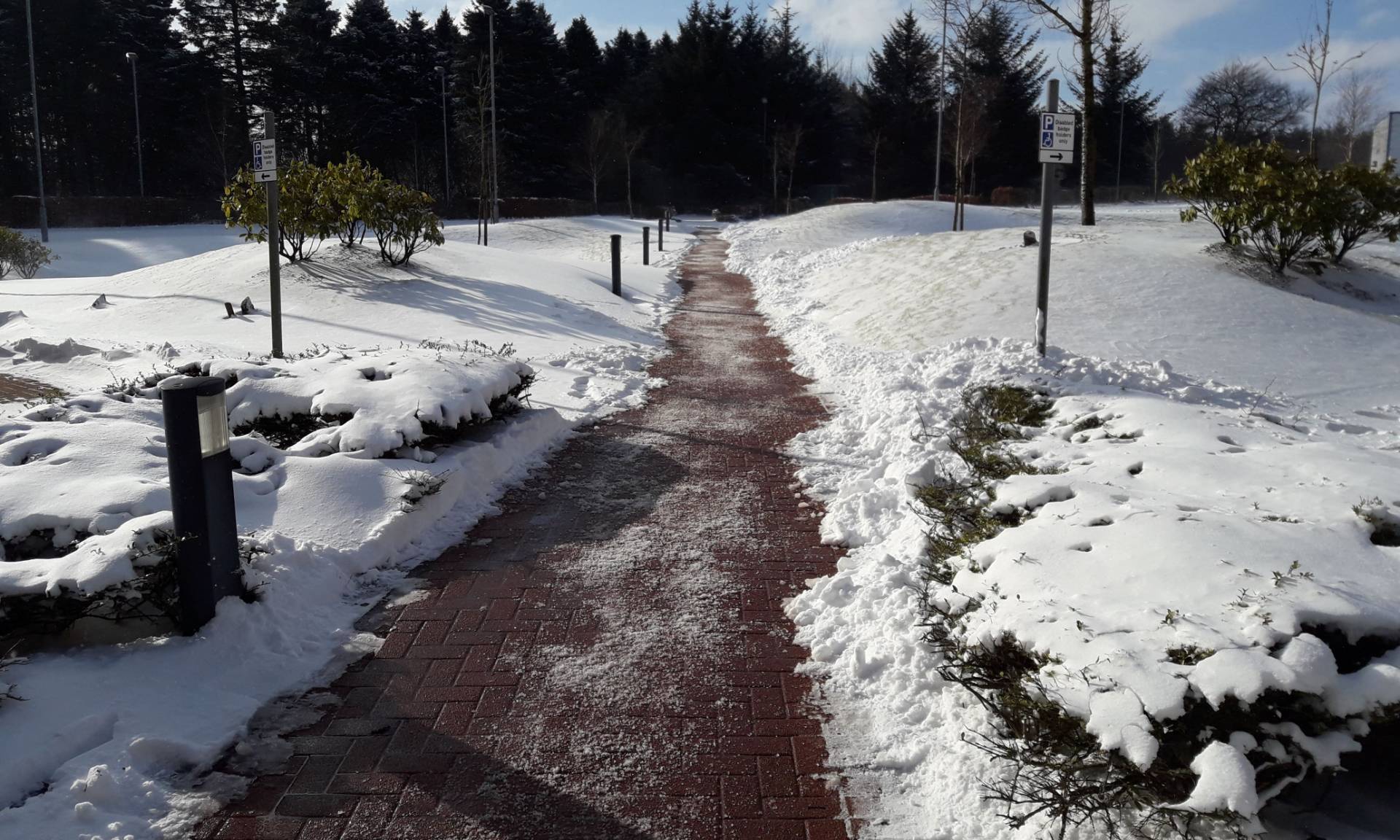Preparing for an unpredictable winter
While the UK weather may be unpredictable, our planning for every eventuality shouldn’t be. Peter Fane, founding director of grounds maintenance specialists, Nurture Landscapes, explains that the old adage ‘proper planning prevents poor performance’ has never been more accurate. Here, he offers his top six tips to ensure that universities and schools remain safe and operational through the dark, winter months ahead.
As the bookmakers start to reveal their odds on a white Christmas happening in the UK, education businesses and their managers shouldn’t be so speculative. Winter is coming, of that there’s no doubt, but what it will bring we can never be sure, therefore it’s imperative that proper planning is put in place to ensure any and every eventuality is covered.
The change in the seasons brings new challenges, from keeping premises accessible, to planning for when staff are unable to get into work due to heavy snowfall.
So, what steps can you take to keep your business operational and keep staff and students safe this winter?
1 – Be prepared
A mistake many facilities make is gritting after ice or snow has already begun to form, rather than before. Grit is best used as a preventative measure; it is not a miracle cure.
Salt, when applied to the site prior to freezing conditions, essentially inhibits the formation of ice. Gritting surfaces already showing ice accumulation means the salt must work much harder for it to react effectively and clear the ice. If snow falls, the salt already on the ground will inhibit some accumulations or will aid snow removal by creating a saline barrier between the snow and the surface.
Ideally, all gritting should be carried out during the evening or overnight on all roads, walkways and entry points. This gives the salt a chance to work ahead of people arriving and using these thoroughfares.
2 – Stay tuned in
It may sound obvious but one of the simplest ways to make sure you’re prepared for winter’s worst is closely observe the weather forecasts. TV weather is generally fine, but there are other forecasts available which are more accurate, detailed and reliable for our line of work.
For instance, use the Met Office’s Open Road forecast to track weather changes and address susceptible areas. At Nurture Landscapes, we use this specific road surface temperature forecast to assess vulnerable surfaces across the whole of the UK and put plans in place.
Given the speed with which the weather can change, often suddenly without warning, having alert systems and adequate protection plans in place will allow you to be responsive when dealing with the changeable weather.
3 – Safety first, at all costs
All employers have a responsibility to protect staff and visitors from accidents and risk. The importance of education cannot be underestimated so giving advice or providing staff with suitable footwear and clothing is paramount, as is placing warning signs in areas known to be affected by ice.
Using own personnel to keep thoroughfares and pathways clear comes at a cost and some risk to public and employer liabilities. Staff may not be adequately trained in how to work safely in wintery conditions, and in many cases work longer hours to incorporate the additional pressures of gritting or clearing pathways on top of their daily work duties.
Therefore, invest in the training, or get the professionals in to help.
4 – Assess the risk areas
Now is the time to assess the characteristics of your site and its vulnerabilities. For example, raised or mezzanine areas are especially prone to ice-accumulation as the air temperature is invariably different from that at ground level.
Think of the frost on your car – it can form on your windscreen even if the ground around your tyres is clear. This is due to the heat sink, where the ground retains heat from the summer and then gradually begins releasing it back into the atmosphere. For areas not in contact with the ground, any moisture on the surface will be more likely to freeze due to very little heat retention and air temperatures having more of an effect.
Then of course, there are the obvious areas that require more attention and possibly alternative products, such as walkways in constant use and metal-plated steps. Draw up an action plan and be ready to implement it the moment bad weather is forecast.
5 – Keep well-stocked
It’s vital you have adequate stocks of salt especially in areas where there is high footfall. Get into the habit of checking these periodically.
There’s no use in having a full supply of grit if nobody can access it safely; make sure your bins are in easy to reach relevant locations and, moreover, you have provision for areas such as fire escapes and car parks. Your procedures should also consider personnel availability and duration when gritting is best carried out.
It’s important to note that there are different types of de-icing product. White Marine Salt, the industry-standard natural mineral for gritting, has its limitations, especially in deeper snowfall and extremely cold conditions, but it is an affordable solution. The alternatives are often much more expensive, which makes them costly to use across a whole site.
6 – Expect the unexpected
We often struggle to react to extreme weather in the UK. As an island nation, we are at the mercy of the elements and in particular, the Jet Stream, which is at the heart of so much of our weather and its variations.
At a local level, your site is just as susceptible. A sudden drop in temperature can result in standing water from thawed ice or, conversely, puddles freezing over.
We all remember the ‘Beast from the East’, when we were caught out by a sudden weather phenomenon which countries like Russia and Canada are invariably better prepared for. It is not normally financially viable to invest resources for these extremes, but this can be mitigated by having emergency plans in place and heed government advice.
Cold snaps can occur at any point; forming an action plan now will see you ready for any eventuality, at any time.
Outsourcing winter preparation has many advantages, leaving you safe in the knowledge that everything will be taken care of by professionally trained personnel, reducing your risk and allowing you to focus on your own day-to-day operations.
With winter almost upon us, the actions you take now will improve your chances of getting through the season safely and keeping disruption to a minimum.
For further information please visit www.nurturelandscapes.co.uk.



